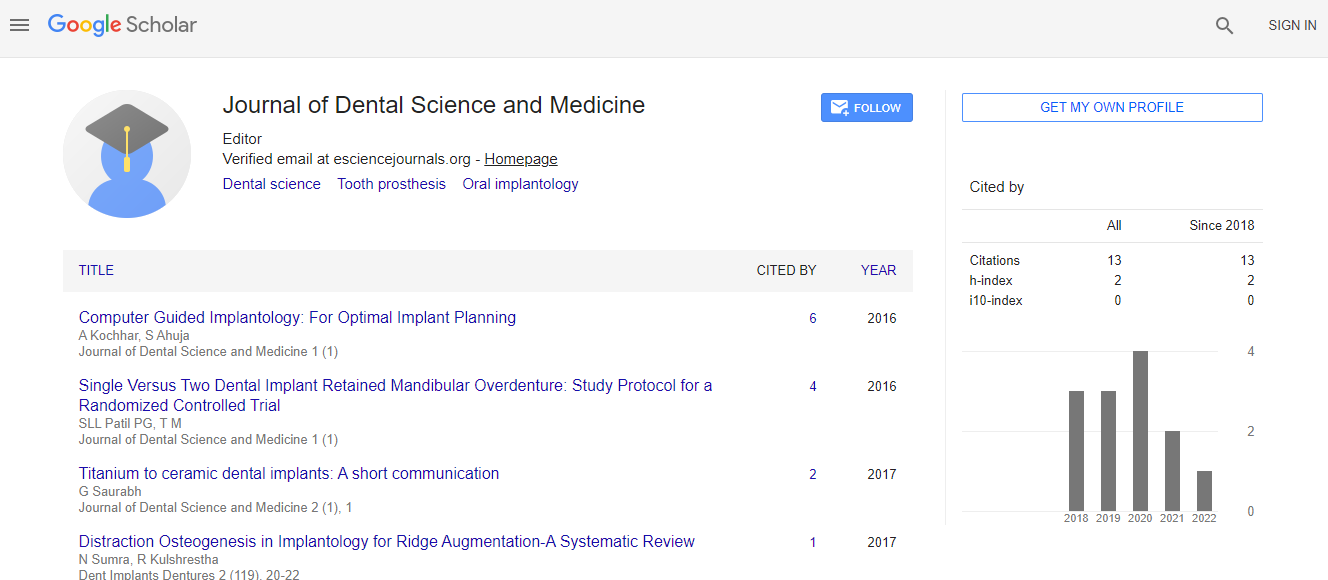Our Group organises 3000+ Global Conferenceseries Events every year across USA, Europe & Asia with support from 1000 more scientific Societies and Publishes 700+ Open Access Journals which contains over 50000 eminent personalities, reputed scientists as editorial board members.
Open Access Journals gaining more Readers and Citations
700 Journals and 15,000,000 Readers Each Journal is getting 25,000+ Readers
Google Scholar citation report
Citations : 13
Journal of Dental Science and Medicine received 13 citations as per Google Scholar report
Indexed In
- RefSeek
- Hamdard University
- EBSCO A-Z
- ICMJE
Useful Links
Recommended Journals
Related Subjects
Share This Page
Effect of chloroform, eucalyptol and orange oil solvents on the microhardness of human root dentin
29th Annual World Congress on Dental Medicine & Dentistry
Alaleh Hashemi
University of Tehran Dental School, Iran
Posters & Accepted Abstracts: Dent Implants Dentures

 Spanish
Spanish  Chinese
Chinese  Russian
Russian  German
German  French
French  Japanese
Japanese  Portuguese
Portuguese  Hindi
Hindi 